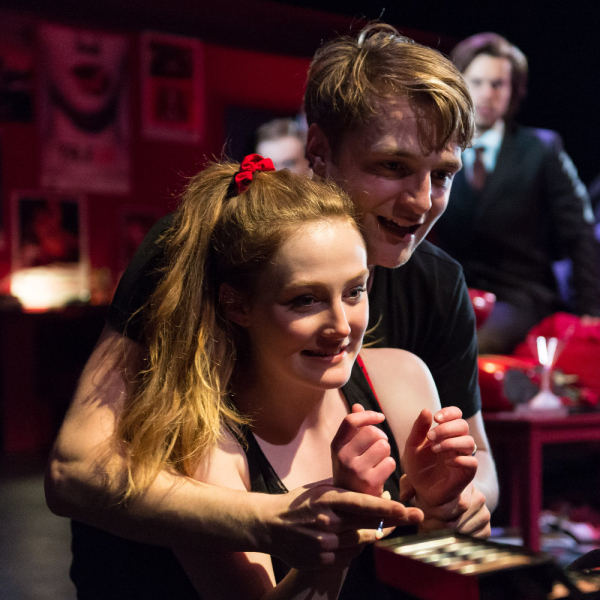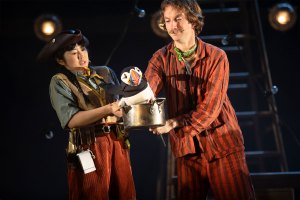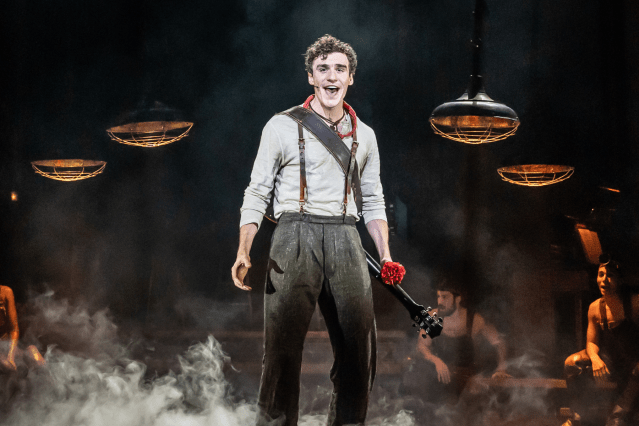'Tis Pity She’s A Whore (Barbican)
Cheek by Jowl restore the 17th century play, producing an incestuous tragedy which leaves a ‘strange but thought-provoking aftertaste’

© Manuel Harlan
That this is a ‘woman’s tragedy’ – a line particularly well-delivered by Eve Ponsonby as the play’s main character Annabella – is a prominent and powerful theme in Cheek by Jowl’s adaptation of John Ford's complex restoration tragedy.
The play, first performed in the 17th Century, explores a major societal taboo by twisting the ‘star-crossed lovers’ convention into a more challenging tale of the incestuous love between a brother and sister. This production, first performed at the Barbican in 2011, continues to enthrall and unsettle through a slick 90 minute show that cuts out all the sub-plots to fully focus on the main.
The set, which comprises of Annabella’s bedroom, comes complete with teddies, toys and posters of vampires, movie stars and pop-idols, ensuring we are persistently reminded of her adolescence in a way that ambiguously points to both fantasy and naiveté. The balance of defilement and corruption in her inner life against the possibility of it being the imagination of a teenager is also implied through the presence of characters who interact directly with her space, even when it is not strictly acting as her ‘bedroom’. Her belongings are rifled through, and her much noted red bed is the centre-stage playing ground for games (or struggles) of sex, power and dominance. Scenes are punctuated by music, keeping things modern, punchy and powerful, but occasionally drowning out the dialogue, leaving parts of the narrative a little obscure.
Fittingly for a play about fate, the cast – consisting mainly of men – act as a Greek chorus, folding in and out of their characters to whisper forebodingly or burst out of doors to form hellish tableaux. In doing so, they both forecast and engineer the demise of the siblings, and to a greater degree, Annabella.
For it is the woman – the whore – here who must pay for her sins. Something that is reinforced by the fates of the only two other women in this production, who meet gruesome deaths at the hands of men. Nicola Sanderson as Annabella’s nurse is played with comic gusto, while Ruth Everett plays a miserably glamorous Hippolita, the jilted lover who’s desire for revenge borders between tastelessly unhinged and pitiable. Annabella, meanwhile, is playful and cat-like, with movements that are at once innocent, child-like, sexual and provocative. Appearing dominated, she guards her space like a caged animal, taking spritely and furtive steps as the men around her woo, fight and scheme.
Orlando James as Giovanni skilfully depicts a rapid descent in to madness, which is made all the starker when contrasted to his first scene. Opening with a conversation between he and his former spiritual teacher, Giovanni’s confession of forbidden love loses the torture, the bookish reasoning and distress conveyed in the original text. Here, he is too distracted by his sister, who leaps and bounds over him (presumably in his – or is it her – imagination) for there to be any sense of gravity to his words. This, the performance seems to tell us, is the effect of a provocative woman.
This is a man’s world, where only the women are punished for the sins committed. Where men are depicted as victims of, or victors over, the wiles and devilry of womanhood.
Are the women really to blame? Did they bring it upon themselves? Was it all a disturbing fantasy conjured up by a vampire-loving, forbidden love-obsessed, sexually awakened teenager? The lack of moral guidance, societal or otherwise here leaves a strange, but certainly thought-provoking aftertaste.












